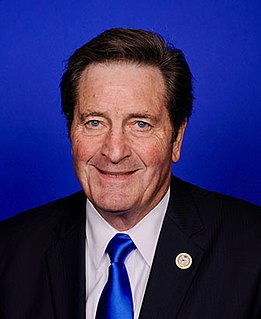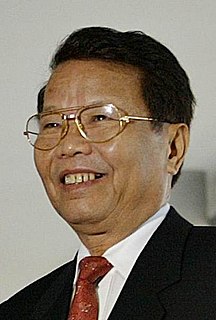A Quote by Antonio Guterres
United Nations Day marks the birthday of our founding Charter - the landmark document that embodies the hopes, dreams and aspirations of 'we the peoples.'
Related Quotes
The United Nations exists not merely to preserve the peace but also to make change - even radical change - possible without violent upheaval. The United Nations has no vested interest in the status quo. It seeks a more secure world, a better world, a world of progress for all peoples. In the dynamic world society which is the objective of the United Nations, all peoples must have equality and equal rights.
It was just one year ago that the world saw this new, invigorated United Nations in action as this Council stood fast against aggression and stood for the sacred principles enshrined in the U.N. Charter. And now it's time to step forward again, make the internal reforms, accelerate the revitalization, accept the responsibilities necessary for a vigorous and effective United Nations. I want to assure the members of this Council and the Secretary-General, the United Nations can count on our full support in this task.
The United Nations should serve as a forum to address our common challenges. And it must also be a space to generate solutions for mutual benefit. This is the very essence of what the United Nations is about. We must position the multilateral system to better serve our people and deliver on their aspirations.
The Charter of the United Nations expresses the noblest aspirations of man: abjuration of force in the settlement of disputes between states; the assurance of human rights and fundamental freedoms for all without distinction as to race, sex, language or religion; the safeguarding of international peace and security.
For all the civilians saved thanks to the presence of peacekeepers, there have been those who were lost - the United Nations personnel who sacrificed their lives for a noble cause. Even as we mourn our fallen colleagues, we are all uplifted by their unflinching commitment and are inspired to strive even harder for the collective cause so eloquently envisaged in the United Nations Charter: a world free from the scourge of war.
The attack upon Korea was an outright breach of the peace and a violation of the Charter of the United Nations. By their actions in Korea, Communist leaders have demonstrated their contempt for the basic moral principles on which the United Nations is founded. This is a direct challenge to the efforts of the free nations to build the kind of world in which men can live in freedom and peace.
The United Nations' founders understood that decisions affecting war and peace should happen only by consensus, and with America's consent, the veto by Security Council permanent members was enshrined in the United Nations Charter. The profound wisdom of this has underpinned the stability of international relations for decades.
The Senate, compared to the House, is where things are supposed to slow down, by design, Founding Father design. The Founding Fathers were hell-bent to stop government action. The Constitution limited government. And that's why people like Obama and Democrats call it a charter of negative liberties because it limits government. It's an anti-government, pro-citizen document. And the founders wanted to make it hard.
































